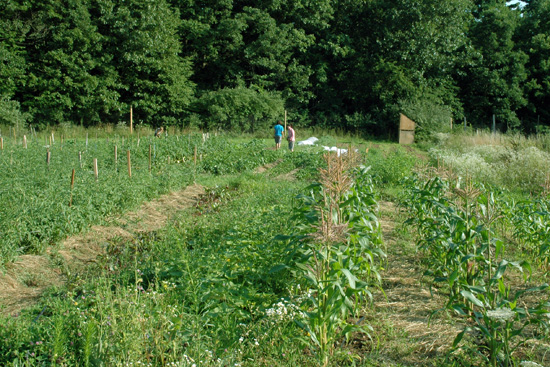Long Lane Farm Honored for Community-Supported Agriculture Efforts
 |
| Wesleyan’s Long Lane Farm originated in 2004 as a place students could learn about food security issues and grow their own produce. It recently won an award from the Department of Higher Education. |
| Posted 04/21/08 |
| Wesleyans student-run Long Lane Farm received a Higher Education Community Service Award from the State of Connecticut for sustaining community-supported agriculture and providing needy families access to fresh, locally-grown produce.
The award was presented by Michael Meotti, commissioner of the Department of Higher Education, and State Representative William Dyson, chair of the Connecticut Commission on Community Service, during an award ceremony April 1 in Cromwell, Conn. Long Lane Farm is an agricultural project that was created by Wesleyan students. It is committed to researching and practicing sustainable agricultural methods, distributing locally grown organic produce to the community and educating the public about the environmental and social implications of food production. “Receiving this award is an exciting recognition of a lot of group work and learning that has developed a campus-community farming project in Middletown, says Long Lane Farm member Jordan Schmidt 08. It’s an encouraging symbol of the growing attention to food production and consumption as loci for work towards environmental and community health and honors food production as an effective space for sharing and discovering knowledge. I think the recognition of Long Lane Farm highlights the need and desire for a more ecologically and socially sustainable approach to feeding Connecticut residents.” This year, 23 Connecticut colleges submitted 66 nominations for the three award categories of Student, Student Group and Special Award for projects led by faculty and staff. Long Lane Farm was one of two winners in the Student Group Awards category. Recipients are selected based on their ability to create projects which distinctly help individuals or community groups incorporate originality and unique approaches to community service, substantially raise student participation and address community problems. |
| By Olivia Drake, The Wesleyan Connection editor |

